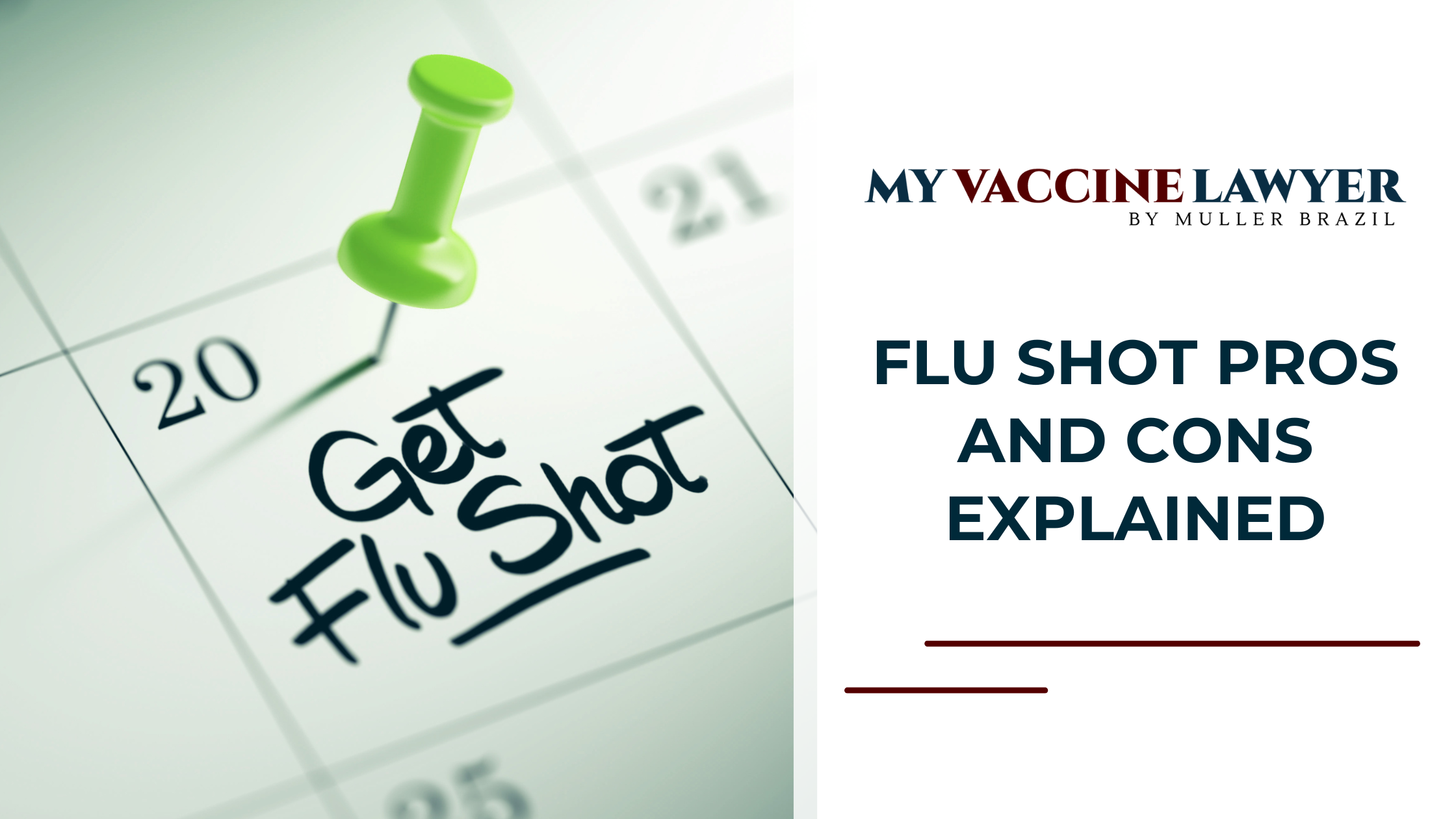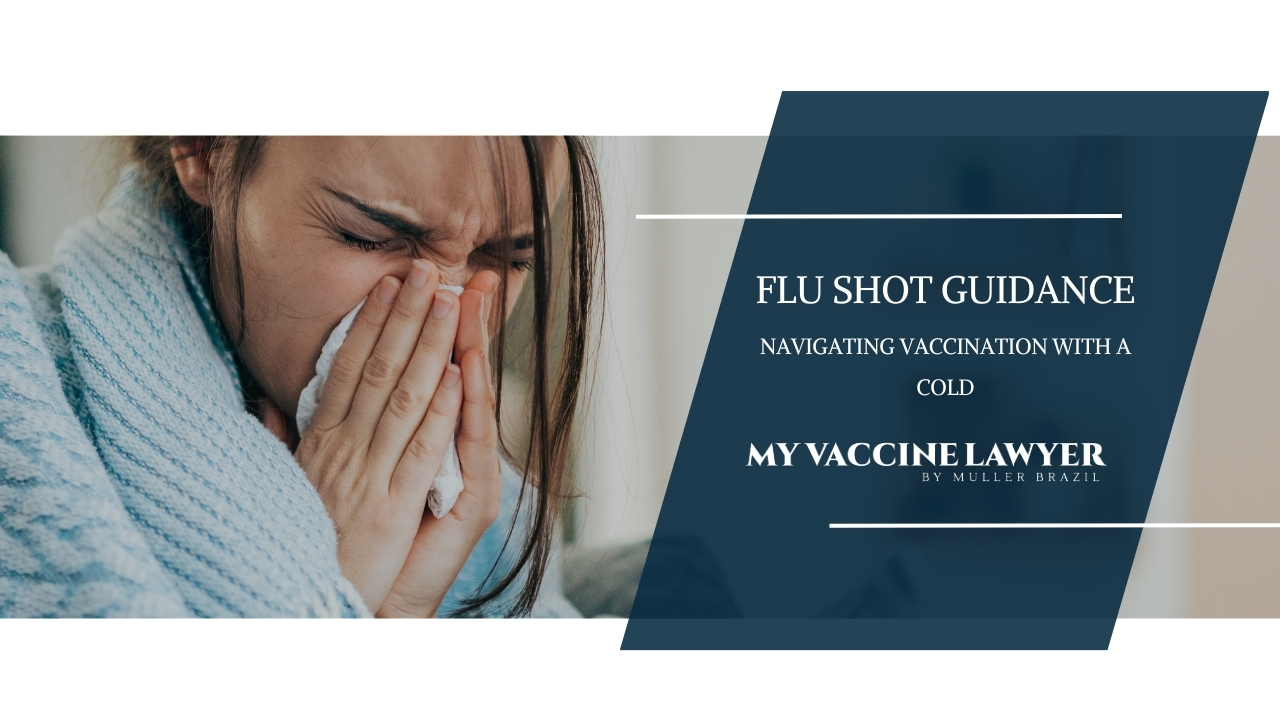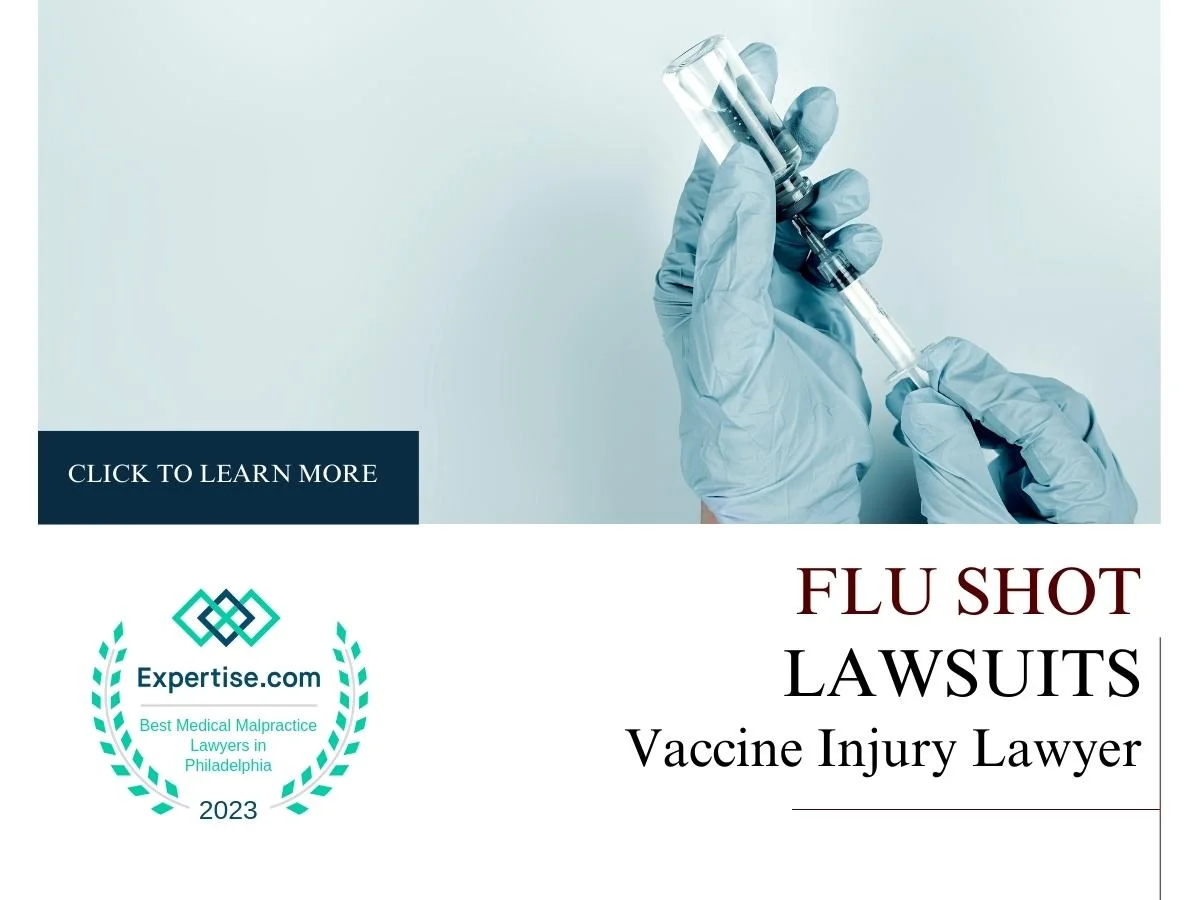Flu Shot Pros and Cons: Should You Get Vaccinated?
The flu shot helps prevent severe illness and hospitalizations, but some people may experience mild side effects or rare complications, making an...
6 min read
Vaccine Injury Law Resources / Flu Shot / The Best Flu Vaccine for Seniors
 Paul Brazil
:
Mar 18, 2025 10:32:12 AM
Paul Brazil
:
Mar 18, 2025 10:32:12 AM
Vaccines have a powerful role in protecting against dangerous diseases, especially for older adults and individuals at high risk.
For seniors, the flu season can be more than just a seasonal nuisance - it can lead to severe flu disease, hospitalizations, and even death. That’s why choosing the best flu vaccine is an important step in protecting your health and avoiding flu complications.
But with so many flu vaccine options - like high-dose flu vaccines, adjuvanted flu vaccines, and standard dose flu shots, how do you know which one is right for you?
While flu vaccines are generally safe, severe reactions can still happen. If you have experienced serious side effects or complications after a flu shot, it’s important to understand your legal rights and options.
As we age, our immune system naturally weakens, making it harder to fight off influenza viruses and recover from flu symptoms. For seniors, this can lead to severe flu disease and flu-related complications that may require hospitalization or even result in death.
Take Control of Your Injury Today
Seniors have several flu vaccine options designed to offer stronger protection against influenza viruses. These age-appropriate flu vaccines provide better defense for those at higher risk of severe flu complications.
Standard dose flu vaccines are widely available and protect against multiple flu strains. However, they may not be as effective for seniors due to weaker immune responses with age.
Examples of Standard Dose Vaccines:
High-dose flu vaccines are designed specifically for seniors 65 and older. These contain 3–4 times more flu virus antigen than standard dose vaccines, helping to create a stronger immune response.
Examples of High-Dose Vaccines:
Adjuvanted flu vaccines contain an adjuvant, an ingredient that boosts the body’s immune response without adding more flu virus antigen. These are a good option for seniors who may not tolerate high-dose vaccines.
Examples of Adjuvanted Vaccines:
Seniors should consult their healthcare provider to determine the best flu vaccine for their age group, health status, and any allergies. Options may include:
Getting a flu vaccine is one of the most effective ways for seniors to protect themselves during flu season. With age comes a weaker immune system, making older adults more vulnerable to severe flu-related complications.
High-dose vaccines and adjuvanted vaccines offer stronger immune responses for seniors, making them more effective than a regular flu shot or standard dose flu vaccines.
While the benefits outweigh the risks for most seniors, it’s important to monitor for flu shot side effects or severe reactions after vaccination. If complications arise, you may need to explore your legal options to protect your rights.
Most flu vaccines are safe and cause only mild side effects as the immune system responds to the vaccine formulations. However, seniors may experience stronger reactions due to high-dose vaccines or adjuvanted flu vaccines, which are designed to create a stronger immune response.
These symptoms usually go away within a few days and can often be managed with over-the-counter pain relievers like acetaminophen or ibuprofen.
While serious flu complications are rare, they do happen. Seniors should monitor for signs of severe reactions and seek medical attention immediately if they experience:
Though flu vaccines are considered safe, some seniors may face lasting complications from severe reactions. If you or a loved one develops a vaccine injury, you may be entitled to compensation through the National Vaccine Injury Compensation Program (VICP).
Discover everything you need to know about a flu shot lawsuit.
At My Vaccine Lawyer, we’ve helped clients recover medical expenses, lost wages, and other costs associated with vaccine injuries.
Getting vaccinated against the flu is an important step in protecting seniors from serious flu complications. But while flu vaccines are generally safe, severe reactions can and do happen.
If you or someone you know has experienced adverse effects, such as nerve damage, allergic reactions, or long-term complications after receiving a flu shot, you may be eligible for compensation through the National Vaccine Injury Compensation Program (VICP).
At My Vaccine Lawyer, we understand the impact a vaccine injury can have on your health, finances, and quality of life. That’s why we’re committed to guiding you through the legal process, every step of the way.
Don’t wait - if you’ve experienced a vaccine injury, we’re here to help.
Call us today at (800) 229-7704 or email info@myvaccinelawyer.com to schedule your free consultation.
The best flu vaccine for seniors often depends on age, health status, and individual needs. Many seniors benefit from high-dose flu vaccines or adjuvanted flu vaccines, which provide a stronger immune response than standard dose flu vaccines. Seniors should speak with their healthcare provider to determine the right option.
Yes, other flu vaccines are available, including standard dose vaccines and recombinant flu vaccines. While these may work well for some seniors, those at higher risk of flu-related complications often benefit from vaccines designed specifically for older adults.
Recombinant flu vaccines are made without egg-based production methods and do not contain live influenza viruses. They are an excellent option for individuals with egg allergies or those looking for a cell-based alternative to traditional flu vaccines.
No, the nasal spray flu vaccine (FluMist) is not approved for adults 50 years and older. It’s typically recommended for younger individuals between 2–49 years old. Seniors should opt for age-appropriate flu vaccines, such as Fluzone High-Dose or Fluad Quadrivalent, for better protection.
Flu vaccines provide protection for about six months, which is why annual flu vaccination is recommended to stay protected during each flu season. Seniors should aim to get their flu shot early in the fall for maximum coverage.
If you experience severe side effects from the flu shot, such as difficulty breathing, high fever, or numbness, contact a healthcare provider immediately. You may also be eligible for compensation through the Vaccine Injury Compensation Program (VICP). Contact My Vaccine Lawyer at (800) 229-7704 for a free case evaluation.
Paul Brazil is a native of Dunmore, Pennsylvania and a graduate of Dunmore High School. For his undergraduate education, he attended Bloomsburg University where he majored in political science. He then went on to earn his JD from Widener University School of Law. Following graduation from law school, Mr. Brazil worked at a large Philadelphia civil defense firm where he litigated workers’ compensation claims and Heart and Lung Act cases. In 2012, he joined with his coworker Max Muller to form Muller Brazil.

The flu shot helps prevent severe illness and hospitalizations, but some people may experience mild side effects or rare complications, making an...

There can occasionally be some confusion with the question, “Can I get a flu shot if I have a cold?” Most often, the answer is yes.

Experienced attorneys helping vaccine injury clients secure financial compensation under the National Vaccine Injury Compensation Program.
